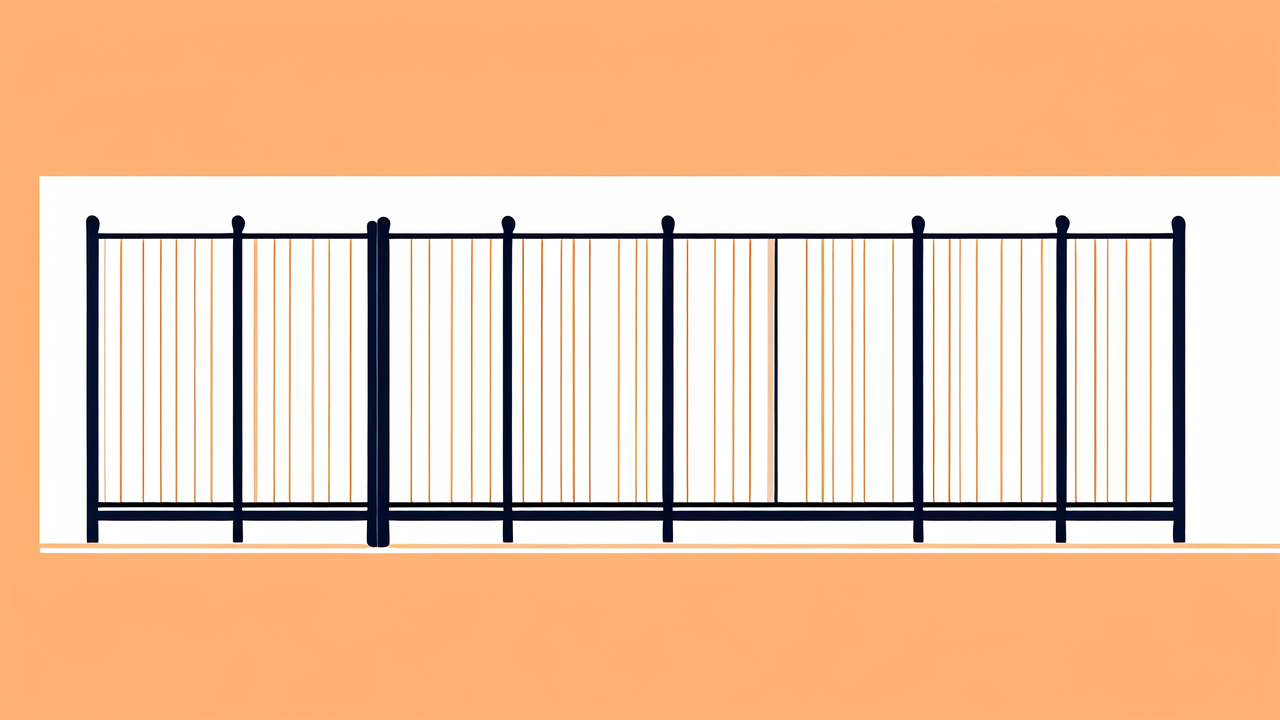Understanding WPC Fence Materials and Their Advantages
The Composition of WPC Fence Pieces
WPC fence pieces are made from a special mix. They combine wood fibers and plastic. This blend creates a strong and long-lasting material. The wood part comes from recycled materials. It can be sawdust or wood chips. The plastic is often recycled too. It's usually high-density polyethylene (HDPE).

The mix of wood and plastic gives WPC fences unique features. They look like real wood but last much longer. They don't rot or warp like regular wood fences. The plastic part makes them waterproof. This means they won't swell or shrink with weather changes.
WPC fences come in many colors and styles. You can find ones that look like different types of wood. Some even have wood-like textures. This gives you the beauty of wood without the upkeep.
Why WPC Fence Materials Are Ideal for Your Home
WPC fence materials offer many benefits for homeowners. First, they're very low maintenance. You don't need to paint or stain them every year. A simple wash now and then keeps them looking new. This saves you time and money in the long run.
These fences are also very durable. They can stand up to harsh weather. Sun, rain, and snow won't damage them like they do wood fences. They don't crack or splinter. This makes them safer for homes with kids or pets.
WPC fences are eco-friendly too. They often use recycled materials. This helps reduce waste and saves trees. They also last longer than wood fences. This means less waste over time.
Another big plus is their resistance to pests. Termites and other wood-eating bugs can't harm WPC fences. This means no costly repairs or treatments. Your fence will stay strong and intact for years.
Creative Fence Ideas Using WPC Pickets
Innovative Designs for Residential Fences
WPC pickets open up a world of design options for your fence. You can create unique looks that stand out in your neighborhood. Here are some innovative ideas:

- Mix and match colors: Use two or more colors to create patterns.
- Vary picket widths: Alternate wide and narrow pickets for visual interest.
- Try horizontal layouts: This gives a modern, sleek look.
- Create curves: WPC is flexible enough to make gentle curves in your fence line.
- Add decorative tops: Use special caps or post tops for extra style.
You can also play with the spacing between pickets. Tight spacing offers more privacy. Wider gaps let in more light and air. You can even create a gradient effect. Start with tight spacing and gradually increase the gaps.
For a bold look, try a diagonal pattern. This adds movement and interest to your fence. You can also combine vertical and horizontal sections. This creates a unique, eye-catching design.
Maximizing Small Spaces with WPC Fencing Solutions
WPC fences are great for making the most of small yards. They can help your space feel bigger and more functional. Here are some ideas:
- Use light colors: Light-colored fences can make your yard feel more open and airy.
- Add built-in features: Incorporate planters or seating into your fence design.
- Create zones: Use short fence sections to divide your yard into different areas.
- Go vertical: Use your fence for vertical gardening to save ground space.
- Try see-through designs: Partially open fences can make your yard feel less closed in.
You can also use your fence as a privacy screen. Place it strategically to block views from neighbors. Or use it to hide less attractive areas like trash cans or air conditioning units.
For small patios, consider a freestanding WPC screen. This can create a cozy nook without taking up much space. You can move it as needed for different occasions.
Expert Installation and Maintenance Tips for WPC Fences
Best Practices for Installing WPC Fence Pieces
Installing WPC fences correctly is key to their longevity. Here are some expert tips:

- Plan your layout carefully: Measure your yard and mark post locations.
- Check local codes: Make sure your fence meets all regulations.
- Dig deep post holes: This ensures a stable fence.
- Use concrete for posts: This makes your fence stronger.
- Leave space for expansion: WPC can expand in heat.
- Use proper fasteners: Stainless steel screws work best.
- Pre-drill holes: This prevents splitting.
- Keep pickets off the ground: This prevents moisture damage.
It's important to follow the manufacturer's instructions. Each WPC product may have specific needs. If you're not confident, hire a pro. They can ensure your fence is installed correctly.
Remember to account for slope in your yard. You may need to step your fence or use special panels. This ensures your fence looks even and functions properly.
Long-Term Care for Your WPC Fence
WPC fences are low maintenance, but some care helps them last even longer. Here's how to keep your fence looking great:
- Clean regularly: Use soap and water or a pressure washer on low setting.
- Check for damage: Look for loose screws or damaged pieces.
- Trim nearby plants: Keep bushes and trees from scratching the fence.
- Remove stains quickly: Use a mild cleaner for tough spots.
- Be careful in winter: Avoid using metal shovels near the fence.
Clean your fence at least once a year. This removes dirt and prevents stains. For tough stains, use cleaners made for composite materials. Avoid harsh chemicals that can damage the surface.
If you notice any damage, fix it promptly. This prevents small issues from becoming big problems. Tighten loose screws and replace any damaged pieces.
In fall, clear leaves from around your fence. Wet leaves can stain the surface. In winter, be gentle when removing snow. Use plastic shovels or brooms to avoid scratches.
With these simple steps, your WPC fence will stay beautiful for years. It's a small effort for long-lasting results. Your fence will continue to enhance your yard and home value.
